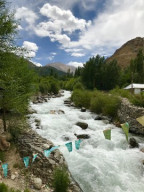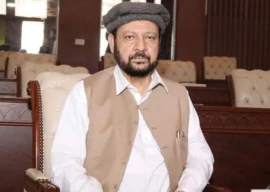
Several prominent clerics in Gilgit-Baltistan (G-B) have expressed reservations over the proposed Ulema Advisory Council which aims to forge sectarian unity in the region. The clerics say the formation of councils alone will not serve the purpose.
Last week, the G-B government announced the 18-member Ulema Advisory Council in which all sects inhabiting the region will be represented. A bill drafted after consultations with the council will be tabled at the next session of the G-B Legislative Assembly.
“This is an attempt to sideline the Masajid Board,” said Agha Rahat, a prominent Shia cleric in G-B, referring to a similar body formed a couple of years ago with the same purpose. Representatives of sects are also in the Masajid Board and it is said to have played a key role in bringing peace in the region marred by sectarian violence.
“We will not be able to support the new body only for the sake of ulema because one such body already exists,” Rahat told reporters on Saturday in Gilgit.
He maintained instead of forming yet another council, the government should have strengthened the extant Masajid Board by delegating more powers to its members.
Similar views were also expressed by Sunni leaders about the proposed body.
In a statement issued, Sultan Rais, spokesperson for Tanzeem Ahle-Sunnat Waljamat, said, “The government thinks its only task is to form bodies in the name of forging peace.” The Masajid Board should be empowered further by adding representatives from all districts of G-B, he added.
However, G-B Legislative Assembly Deputy Speaker Jamil Ahmed termed the clerics’ reservations premature. “The roles and responsibilities of both bodies are discreet and neither can be swapped with the other,” said Ahmed. He added the names of the members of the Ulema Advisory Council will be finalised soon.
Published in The Express Tribune, September 16th, 2014.








1730886375-0/Untitled-design-(46)1730886375-0-270x192.webp)








COMMENTS
Comments are moderated and generally will be posted if they are on-topic and not abusive.
For more information, please see our Comments FAQ